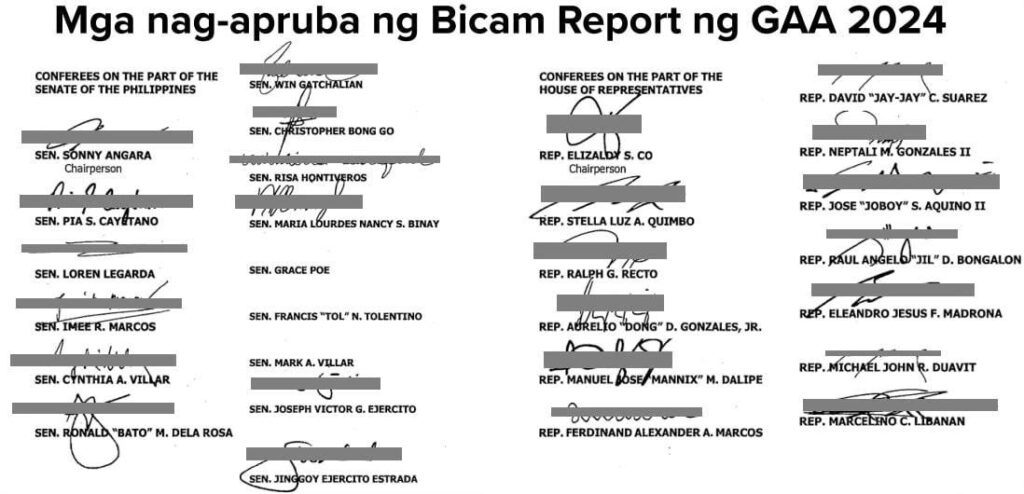In last week’s column, we laid out a detailed roadmap on how to fully digitalize and corruption-proof the Philippine *ayuda* system. It was ambitious, yes—but not impossible. The technology exists, the playbook is tested, and the people are more than ready. So why does it still feel like we’re stuck in the same pit of paper forms, barangay favoritism, and “pilot test” excuses? Simple: the biggest obstacle to digital transformation in this country is not technology—it’s the government itself.
The Department of Information and Communications Technology (DICT) is supposed to lead this digital revolution. But what are they actually doing? Aside from launching e-Gov apps that barely work and National ID programs that remain functionally useless for anything that matters, the agency has failed to show boldness, foresight, or even basic operational capability. Their inability to integrate databases or enforce a secure digital ID ecosystem should disqualify their leadership from talking about “inclusion” or “transparency” ever again.
The Cybercrime Investigation and Coordinating Center (CICC) is another agency that loves buzzwords but refuses to innovate. In theory, CICC should be a core player in ensuring the cybersecurity of a digital ayuda platform. In practice, they’re too busy reacting to petty scams and phishing links while ignoring systemic fraud that drains billions in taxpayer money. Where is their voice in pushing for blockchain-based tracking of government disbursements? Silent.
Let’s talk about the real-world implications. Barangays continue to be the gatekeepers of aid—not through verified databases but through patronage. There is no universal, tamper-proof system that tracks who gets what. The poor remain at the mercy of their connections, and the middle class—who fund this entire circus through their taxes—are left watching in frustration. The newly approved 12% tax increase in Digital Services will hit hard on the middle class, especially small business owners reliant on digital services. In any other country, this would be called what it truly is: digital oppression masked as good governance.
Now, ask yourself: if a small private company can run full-scale payrolls, benefits distribution, and ID verification through mobile apps in a matter of months, why can’t the Philippine government do the same with ayuda? Why can’t we have a single digital platform where beneficiaries are pre-verified, payments are traceable, and grievances are resolved in real time? Is it incompetence—or is the system deliberately kept broken because too many people profit from the chaos?
Let’s be blunt. The continued failure to digitize *ayuda* is not just a tech issue—it’s a moral and political one. Every manual form, every unverified payout, every delay due to “missing names” is an opportunity for manipulation and theft. And each time the DICT or CICC issues another press release about their “digital efforts,” they insult the intelligence of every working Filipino who can clearly see nothing has changed.
Worse, this is happening under a president who promised to bring the country into a new era. President BBM has the chance to fix this—but only if he wakes up to the reality that the agencies under him are not performing. The DICT should not be allowed to fumble another year. The CICC must start acting like a cybersecurity agency, not a PR firm. And the DSWD must stop treating technology as an afterthought.
The way forward is not complicated. It requires: (1) a mandatory, centralized, biometrics-based digital ID system; (2) digital-only disbursement through e-wallets or bank transfers; (3) a blockchain-secured public ledger for transparency; (4) AI-powered fraud detection; and (5) a centralized grievance portal for citizens to escalate issues. But more than tools, it requires political will—and the courage to fire dead weight in the Government who are clearly just occupying space.
As the public, we should stop tolerating mediocrity. We should stop accepting that the poor get manipulated for votes and the middle class gets punished for working hard. We must demand a digital system that levels the playing field, eliminates “kaibigan ng barangay” privileges, and ensures every centavo of public funds reaches its rightful recipient.
If DICT and CICC cannot deliver this, then they must be overhauled or replaced. This is no longer a tech proposal—it is a national imperative. A functioning digital *ayuda* system is not a luxury in 2025. It is a moral, economic, and political necessity.
So here’s the line in the sand: Either this administration creates the first truly digital, transparent social safety net—or it becomes yet another government that used ayuda not as empowerment, but as a leash to keep people quiet and to get those handing out ayuda reelected. The people are watching. The clock is ticking. And very soon, time will run out—because the world is accelerating toward the next wave of technological revolutions, and the Philippines hasn’t even laid the groundwork. The cost of inaction won’t just be inefficiency—it will be national irrelevance, and a nation moving backward instead of forward.
————————————
Rafael “Raffy” Gutierrez is a veteran Technology Trainer with over 25 years of experience in networking, systems design, and diverse computer technologies.




